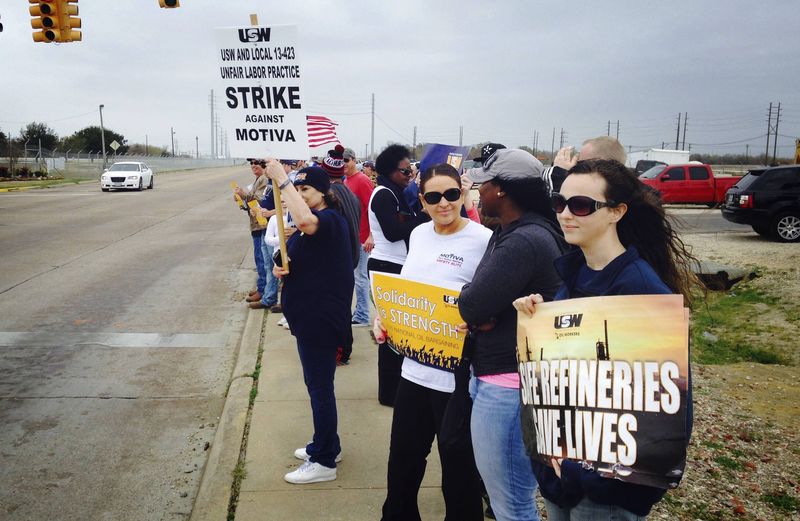HOUSTON (Reuters) - The largest U.S. refinery strike since 1980 continued through its 25th day on Wednesday with no movement toward renewed talks to end a walkout by 6,550 union workers at 15 plants, including 12 refineries accounting for one-fifth of domestic capacity.
A spokesman for lead refinery owner representative Shell Oil Co, the U.S. arm of Royal Dutch Shell Plc, said no face-to-face meetings have been scheduled with the United Steelworkers union (USW) as of Wednesday.
"No date has been set (for talks to resume,)" said Shell spokesman Ray Fisher. "Not sure if there has been any contact (between the two sides)."
A USW spokeswoman declined to discuss the status of negotiations on Wednesday.
Talks for a new three-year contract covering 30,000 USW members at refineries and chemical plants broke off on Friday, after which the USW ordered strikes at three Motiva Enterprises refineries, which are co-owned by Shell.
The union has said its negotiators are available to meet with Shell.
Sources familiar with the talks have told Reuters that face-to-face negotiations may not resume this week.
Talks on local issues are set to begin again on Friday between LyondellBasell and the USW local union representing workers at the company's Houston refinery, said sources close to the negotiations.
A Lyondell spokesman declined to discuss the status of negotiations with the local union.
The second-largest crude distillation unit at BP Plc's 413,500 barrel per day (bpd) refinery in Whiting, Indiana, where about 1,100 USW members are on strike, was undergoing repairs on Wednesday after a malfunction this morning.
Companies have called on temporary replacement workers to keep plants running at nearly normal levels.
USW's International President Leo Gerard announced an agreement on Wednesday with Sean Garvey, president of North America's Building Trades Unions (NABTU), which represents workers who build and overhaul refinery units.
The union is seeking to win back daily refinery maintenance jobs now performed by non-union contractors, but not jobs performed by NABTU, Gerard and Garvey said.
The two union leaders also said NABTU members will respect the USW picket lines and not perform work that had been done by striking workers.
However, new construction by NABTU members will be permitted and USW will assist building trades unions in facilitating the work.
USW members work at more than 200 U.S. oil terminals, pipelines, refineries and chemical plants.
